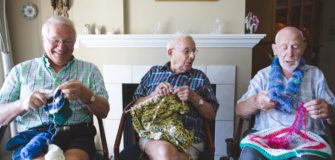The University of Queensland and Australian biotech giant CSL last month began injecting 120 Brisbane volunteers with a shot vaccine.
A coronavirus vaccine being developed by Australian researchers has produced zero side effects in human trials up to now and has shown promise with mammals.
Project co-leader Professor Keith Chappell said the EU animal trials, conducted by Viroclinics-DDL, had proven to be a success. ‘The neutralising response created by our molecular clamp vaccine in animal models was better than the typical level of antibodies found in patients who have recovered from COVID-19,’ Dr. Chappell said.
He said the hamsters were given the vaccine and Seqirus MF59® adjuvant had reduced lung inflammation after exposure to the virus. No side effects are reported to date on the human trial element going down in Brisbane, although more clinical results are needed from the volunteers in suburban Herston. UQ’s Brisbane project is one amongst just 17 human trials for a possible vaccine happening worldwide, including within the US, UK, and China.
Globally, over 130 coronavirus vaccines are being developed but UQ’s work has demonstrated great success within the pre-clinical development stage.
The good news from clinical trials has been revealed per week after Prime Minister Scott Morrison’s government signed an in-principal handle UK pharmaceutical giant AstraZeneca to receive early supplies of a potentially successful vaccine being developed with Oxford. Should UQ successfully develop a vaccine in Australia, Dr. Chappell said the largest challenge would be in tasking CSL, formerly referred to as Commonwealth Serum Laboratories, with manufacturing sufficient quantities of the drug.
‘One of the large challenges within the development of vaccines is that the ability to supply them at sufficient scale for widespread use,’ he said.
‘We are working with CSL to make sure the assembly yield is as efficient as possible, and have every confidence they’ll be ready to manufacture a lot of doses required to guard the Australian public.’
UQ is running clinical trials until mid-2021 – but, if successful, a possible vaccine can be unrolled at the beginning of next year for emergency use among the broader Australian population. The Queensland vaccine has the advantage of being worked on in partnership with a manufacturer, CSL, meaning it may well be mass-produced quickly if successful.
The Global Coalition for Epidemic Preparedness announced a partnership with CSL in June to fast-track clinical testing and potentially begin manufacturing should the trials prove successful. CEPI gave UQ $15.16million to develop a molecular clamp vaccine platform that permits rapid vaccine design and production.
Another $10million came from the Queensland government, with the commonwealth chipping in another $5million additionally to the $10million that has come from philanthropic donors.
A version of this article was originally published on https://www.dailymail.co.uk/news/article-8664063/University-Queensland-coronavirus-trial-vaccine-produces-zero-effects-humans-hamsters.html?fbclid=IwAR3QRTBq-JR4Bo0I1fYZi0ZdrIlFx2WFmSulTooVdQnUwEqEJ719WivYeqQ





















